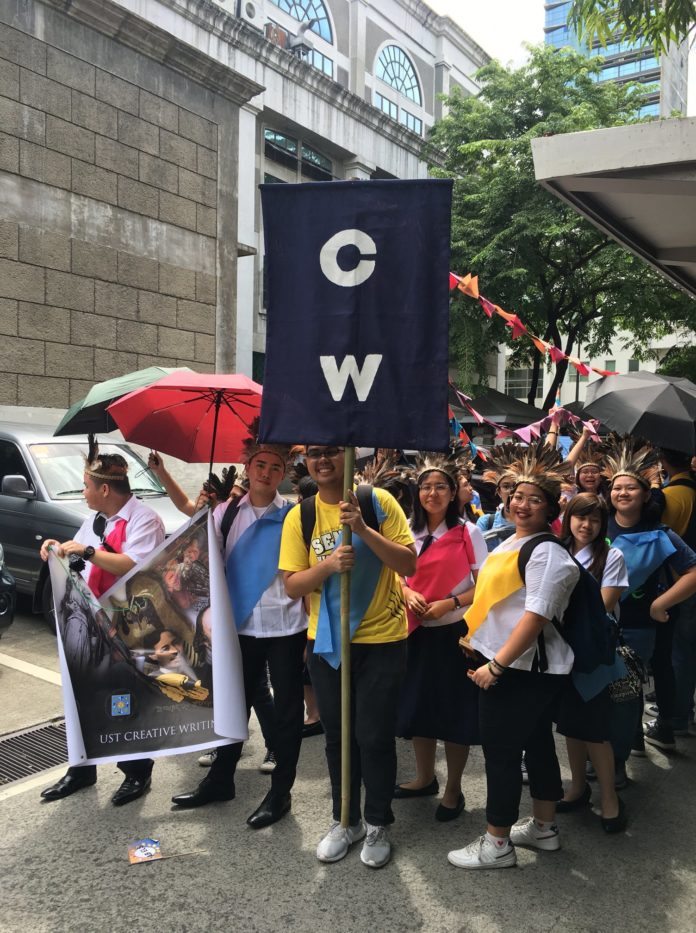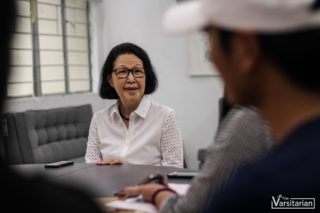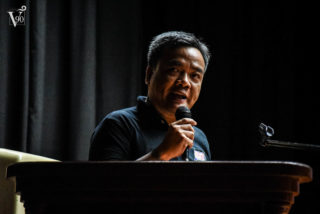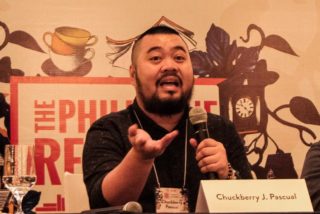
BEING the birthplace of the country’s literary titans such as Paz Latorena, Ophelia Dimalanta, F. Sionil Jose, Bienvenido Lumbera and Cirilo Bautista, the University will carry on in maintaining its literary prestige and tradition of producing high-caliber writers, as it welcomes another set of students on one of its newest programs, Bachelor of Arts in Creative Writing (AB-CW), for the coming academic year.
According to the program description, AB-CW is “designed to nurture and guide aspiring student writers in the four major genres of poetry, fiction, creative nonfiction, and drama.”

Cristina Pantoja Hidalgo, director of the UST Center for Creative Writing and Literary Studies (CCWLS), said the undergraduate program would complement the existing Master’s program.
“The Creative Writing program will feed the MA (Master of Arts) program,” Hidalgo told the Varsitarian in an interview. “Another reason is a lot of undergraduate students have told us that they’re interested in taking up Creative Writing.”
Hidalgo proposed the establishment of AB-CW program to Faculty of Arts and Letters (Artlets) Dean Michael Anthony Vasco and former Vice Rector for Academic Affairs Clarita Carillo in 2012.
Artlets administration, however, decided to postpone the program’s launching due to the
advent of the K to 12.

Joselito de los Reyes, chairman of the UST Department of Literature, said the program would validate the University’s status as the “launchpad of writers.”
“It’s high time, I guess, that we cater to those who want to delve into Creative Writing,” de los Reyes said. “Some universities do offer it, but why not UST? We have capable faculty members to teach.”

Chuckberry Pascual, AB-CW coordinator, said the curriculum involves lectures, seminars, and workshops.
Lecture sessions, according to the program description, will utilize the analyses of “literary models (professional examples in the different types and forms of creative writing), highlighting the effectiveness of their literary techniques and rhetorical strategies.”
Workshop sessions will involve students producing their own “creative writing drafts…
critiqued by the professor and their peers.” There will also be revisions and re-critiquing before the final submission of works, Pascual noted.
Pascual gave certain “expectations” for those who wish to pursue a degree in AB-CW.
“I expect them to share their love for reading,” he said. “Whether you are a Literature
major or a writer, you must be a reader.”
“For Creative Writing majors,” he added, “here’s one thing I can say, being a graduate of
the program myself: they have to be strong. They have to be receptive to constructive criticism.”
AB-CW students are expected to take up Creative Writing for Beginners and the Introduction to Creative Writing for their first and second terms.
Most of the program’s faculty members would come from CCWLS, where the faculty fellows are award-winning creative writers themselves.
Top authors and regular contributors in journals, magazines and newspapers would also
be invited as guest lecturers.
Aside from regular workshop courses in poetry, fiction, creative nonfiction, and drama, there will be specific areas of specialization, such as scriptwriting for film and television, and writing for children and young adults.
AB-CW students will also have the freedom to choose the language of their forte, whether in English, Filipino, or both.
The AB-CW program will be handled by the University’s Department of Literature and UST Literary Society, the organization of AB Literature majors.
The AB-CW program for this academic year has produced one block section. It is still
accepting late enrollees.
Last Aug. 2, during “Unang Yugto,” the UST Department of Literature’s general assembly, a
few AB-CW students gave their expectations of the new program.
Yasmin Medina said she expected “strong and inspiring professors” who would mentor her to “become better in writing” through “formal education.”
“It may be wishful thinking to hope that they will be nice, but I doubt it,” Medina said. “I really hope that they will encourage me to become better.”
Sheena Cristobal said she prepared for the program by reading up. “I have been reading 24/7. I’m really fond of reading a lot of stuff and even though I’m having hard time right now with my ideas, I write books,” she said.
Lance Carlo Angelo said he would use his creative training as a “weapon” to uphold the LGBT (lesbian, gay, bisexual, transgender) community.
“In this generation, we should promote LGBT because they have been struggling for so long until now,” Angelo said. “It’s a great opportunity for me to help them to be recognized, especially here in the Philippines.” Elmer B. Coldora with reports from Francis Agapitus E. Braganza













